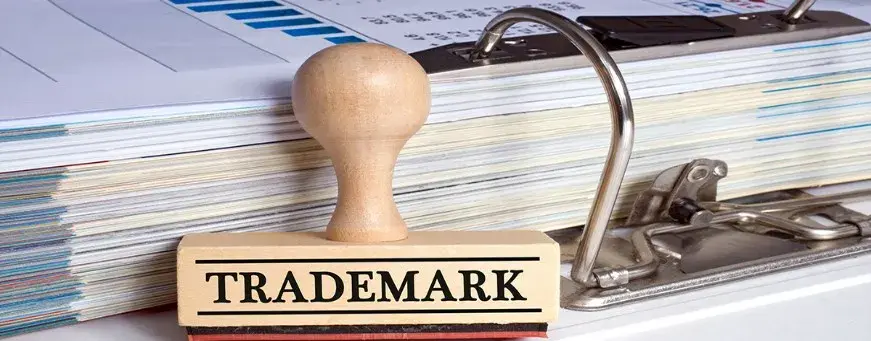TRADEMARKS FILING AND PROSECUTION IN SOUTH KOREA
A trademark is a distinctive sign or indicator used by an individual, business organization, or other legal entity to help consumers indentify that its products or services with which the trademark appears originate from a unique source, and to help distinguish its products or services from those of other entities.
Trademark in South Korea may be designated by the following symbols:
- ® (for a registered trademark)
- ™ (for an unregistered trademark)
A trademark is typically a name, word, phrase, logo, symbol, design, image, or a combination of these elements. There is also a range of non-conventional trademarks comprising marks which do not fall into these standards categories, such as those based on colour, smell, or sound.
A trademark provides protection to the owner of the mark by ensuring the exclusive right to use it to identify goods or services, or to authorize another to use it in return for payment. Trademark protection also hinders the efforts of unfair competitors, such as counterfeiters, to use similar distinctive signs to market inferior or different products or services.[1]
The owner of the registered trademark may initiate legal proceedings for trademark infringement to prevent unauthorized use of that trademark. There is no course of action against infringement of a well-known or famous unregistered trademark under the Trademark Act, but action may be pursued under the Unfair Competition Prevention Act.[2]
| Relevant office | Korean Intellectual Property office (KIPO) |
| Nice classification | Yes |
| Paris convention | Yes |
| Madrid system | Yes |
| Multi class system | Yes |
| Documents required for filing a trade mark application | Applicant name and address, designated goods and services, Power of Attorney(if necessary), 10 specimens of Trademark |
| Prosecution process | Filing publication of the mark in the trade mark journal opposition(within 2 months from the publication date) registration renewal |
| Registration term | 10 years from the date of registration |
| Renewal term | 10 years |
Trademark searches in South Korea
It is advisable to conduct a trademark search prior to filing a trademark application to ascertain the availability of trademarks, existence of prior identical/similar marks on the register etc., so as to avoid any objection and opposition with respect to the mark.
A trademark search in South Korea can be conducted for word marks, device marks, numeral and labels. An official search can be conducted at the records of the Korean Intellectual Property office (KIPO). The registry has provided with Korean Intellectual property rights information service for conducting official searches of the trademarks. The search guide for conducting searches is also available on the website and the link for the website is: http://engdtj.kipris.or.kr/engdtj/searchLogina.do?method=loginTM [3]
Trademark word search edition of South Korea follows the Nice Classification and trademark applications can be filed for goods in classes 1-34 and services in classes 35-45.
It is advisable to conduct comprehensive trademark clearance search in South Korea to ascertain availability of the proposed mark and also to overcome any objection and opposition with respect to mark later on.
Along with trademark search, it is also advisable to do a comprehensive company search and domain search of the proposed trademark in South Korea. It is advisable to conduct a comprehensive search for a figuration trademark. The device marks include individual marks such as stylized letters, numerals, shapes, plants, celestial bodies, living creatures etc. or combination of marks containing device marks. A device mark search in South Korea can be conducted amongst the marks filed and registered as per the Vienna code classification.
Filing trademark applications in South Korea
A person may file a multi class or single class trademark applications in South Korea.
Trademark application can be filed in the following categories:
- Ordinary Applications
- Convention application (claiming priority from a convention country)
Ordinary application in South Korea:
Ordinary trademark applications filed South Korea are applications without claiming any priority. Ordinary applications can be fled online through the official website of the Korean Intellectual Property Office (KIPO). The website provides with an IP office automation service through which the users can experience a KIPOnet e-filing services, which is established to computerized all the form application filing to examination, registration etc. of the Korean Intellectual Property office(KIPO) that used to depend manually. Multi class trademark applications can be filed in South Korea. However, the trademarks act also lays down provisions regarding the filing of priority applications, wherein priority of the mark can be claimed in the said mark filed in a convention country.[4]
Priority trademark applications in South Korea/Convention trademark application in South Korea:
A priority trademark application may be filed in South Korea. A priority trademark application should be filed in South Korea within 6 months after the date on which the application was made in the convention country.[5]
Paris convention
The Paris Convention for the Protection of Industrial Property, signed in Paris, France, on March 20, 1883, established a Union for the protection of industrial property. It offers national treatment to the applicant residing in the member country of the union, in other words. National treatment is a very important concept and is essential for successfully achieving the fundamental aim of the Paris Convention. The idea is to provide equal treatment to applications from member countries, in a given member country and not to differentiate between the nationals of member countries for the purpose of grant, and protection of industrial property. Priority application can be filed in South Korea within six months of after the date on which the application was made in the Convention Countries.
Trademark classes for goods and services
South Korea follows the nice classification of classes. Korean intellectual property office uses the nice classification of classes that groups together similar goods or services into 45 different classes. Classes 1 to 34 are assigned for the goods and classes 35 to 45 are assigned for the services. Each class contains well defines list of terms and cover all the goods and services.
Trademark examination in South Korea
Once the application is submitted for registration it goes through the examination stage. The commissioner of the Korean intellectual property office requires the examiners to examine the application for registration and formal objections. The trademark is examined on the basis of distinctiveness whether it is not similar or identical to other marks and also on the grounds as stated under Article 54 of the act.
Where the examiner decides to reject the application he shall notify and address the grounds of rejection and basis of rejection of each of the designated goods and the applicant must give his written opinion about the rejection within the prescribed time period as specified by the Ordinance of the Ministry of Trade, Industry and Energy. In case applicant fails to submit a written opinion about the grounds of objection within a prescribed time period, he may apply for continuing trademark procedure by submitting the written opinion addressing the grounds of objection within two months from the expiry of such period.
If no objection is raised by the examiner an in case if the objection is raised and it has been overcome by the applicant’s response, the examiner will render the application to publication. [6]
Trademark opposition in South Korea
On the successful completion of the examination stage, the application for the registration is accepted and published in the trademark gazette for the third party observation. Any interested party within 2 months from the date of publication may file a notice of opposition. A person who raises a formal objection may amend the grounds as stated in the written formal objection and evidence within 30 days after the filing of the formal objection.
A collegial body of three examiners will examine and decide the objection. A collegial body of examiners will examine the grounds which are not claimed by the applicant and opponent; it will provide the applicant and the opponent to give their opinion on such grounds within the prescribed time period.
If at least two formal objections are raised and where the collegial body found one objection to be a reasonable ground then they will opt not to decide on remaining formal objections. In case collegial body fails to decide on any of the formal objections then commissioner of the Korean Intellectual property office will serve copy of the decision rejecting trademark registration to the relevant person who raises the formal objection.
The collegial body of examiners will decide on the matter after the expiry of the objection period. The commissioner of the Korean intellectual property office will serve the copy of the decision to the applicant and the opponent.
The applicant can appeal a decision for trail under Article 116 of the act and the opponent can appeal a decision for trial to invalidate trademark registration under Article 117 of the act.[7]
Trademark registration in South Korea
The application shall proceed to registration where there is no opposition or where the opposition was filed and was decided in favor of the applicant. The mark is registered for a period of 10 years from date of registration and the registration certificate is issued.
[1] https://ssrana.in/global-ip/international-trademark-filing-registration/trademarks-in-united-states/
[2] https://www.kipo.go.kr/en/HtmlApp?c=30103&catmenu=ek04_02_01
[3] http://engdtj.kipris.or.kr/engdtj/searchLogina.do?method=loginTM
[4] https://www.kipo.go.kr/en/HtmlApp?c=90101&catmenu=ek02_05_01
[5] https://www.wipo.int/treaties/en/ip/paris/summary_paris.html
[6] https://elaw.klri.re.kr/kor_service/lawView.do?hseq=42777&lang=ENG
[7] https://elaw.klri.re.kr/kor_service/lawView.do?hseq=42777&lang=ENG








